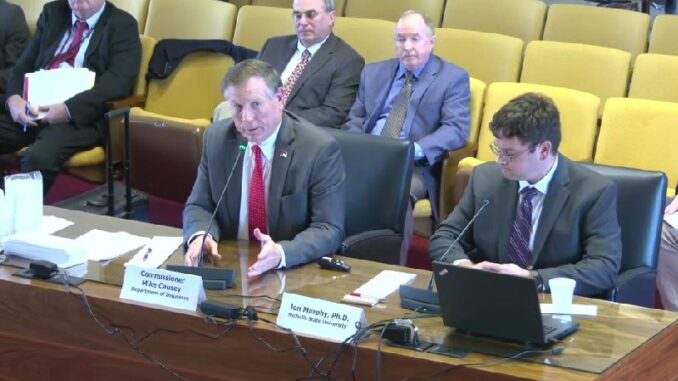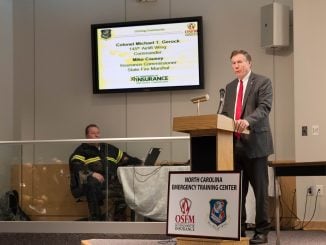
RALEIGH — At a hearing held on Monday, Dec. 11, state lawmakers on the House Oversight and Reform Committee heard the pros and cons regarding changes to state auto insurance regulations that could potentially lower premiums for drivers.
The hearing centered on North Carolina’s auto insurance system’s “Reinsurance Facility,” or NCRF, which is designed to cover individuals who have poor driving records and are designated as “high-risk” drivers. The North Carolina Reinsurance Facility has the highest percentage in the nation of high-risk drivers, which has arguably contributed to elevated costs for consumers.
Committee members heard from various experts, including Insurance Commissioner Mike Causey and former professor Jonathan Murphy.
The hearing featured a report by Murphy that was referred to in pre-hearing communications and during the hearing as the “Murphy Report.” A key finding highlighted during the hearing was that around 25% of insurance policies end up in the Reinsurance Facility, a much higher percentage than in other states.
The Murphy Report contains suggested reforms to the system based on South Carolina’s 1997-2003 model and emphasizes potential measures to reduce reliance on the Reinsurance Facility, slow premium growth, and lower costs for drivers. The proposed reforms involve removing rate increase limits, regulating policy transfers to the facility, and promoting market competition.
The report admits that reducing the size of the residual market “may come at the expense of jobs in the NCRF,” and that, depending on what action the legislature takes, some drivers may see their premiums rise, “specifically” those who are high-risk but not currently in the NCRF.
A criticism raised was the lack of restrictions on how many drivers an insurance company can place in the program as an indicator of a failed market.
Causey defended the stability of North Carolina’s auto insurance market, citing low rates and a low percentage of uninsured drivers.
The hearing follows a settlement negotiated in August of this year by Causey involving a requested 28.4% rate hike by the North Carolina Rate Bureau. The settlement produced an average statewide auto rate increase of 9%; a 4.5% in 2023 and 4.5% in 2024. Per the agreement, motorcycle liability will increase by 4.6% over the same time frame.
Despite the recent increase in auto insurance rates, Causey contended that North Carolina’s rates remain among the lowest in the nation. He attributed rising rates to factors like distracted driving and rising repair costs as a result of continued inflation.
During the hearing, Committee Co-Chair Rep. Harry Warren (R-Rowan) suggested that the state might benefit from a different system, questioning the current approach’s fairness to good drivers.
Causey, in both his remarks and written testimony, argued against any immediate legislative changes so that recent regulatory adjustments have time to work and the impact of those adjustments can be gauged.
As the hearing wound down, lawmakers seemed unsatisfied with the answers provided, and a post-hearing press statement by the committee said, ”The Department of Insurance struggled to answer clearly whether the benefits of the facility outweigh its costs.”
“Although insurers do not make a profit on their ceded policies, Causey and DOI staff admitted that insurers are able to charge an administrative fee and make profits on other coverage connected to the ceded policy,” reads the post-hearing statement. “When Causey said some companies sell all of their policies through the Facility, Warren asked how they could stay in business if they do not earn a profit from these policies.”
The statement went on to note that “North Carolinians paid $360 million in the fiscal year that ended in June to subsidize insurance companies selling policies through the Facility,” and that “two surcharges for the current year are set at 13% of premiums, which is more than the combined 9% premium increase over two years the Commissioner approved.”
“I think the discussion today has raised more questions than it answered,” said Warren in his final remarks, signaling another hearing may be necessary.

